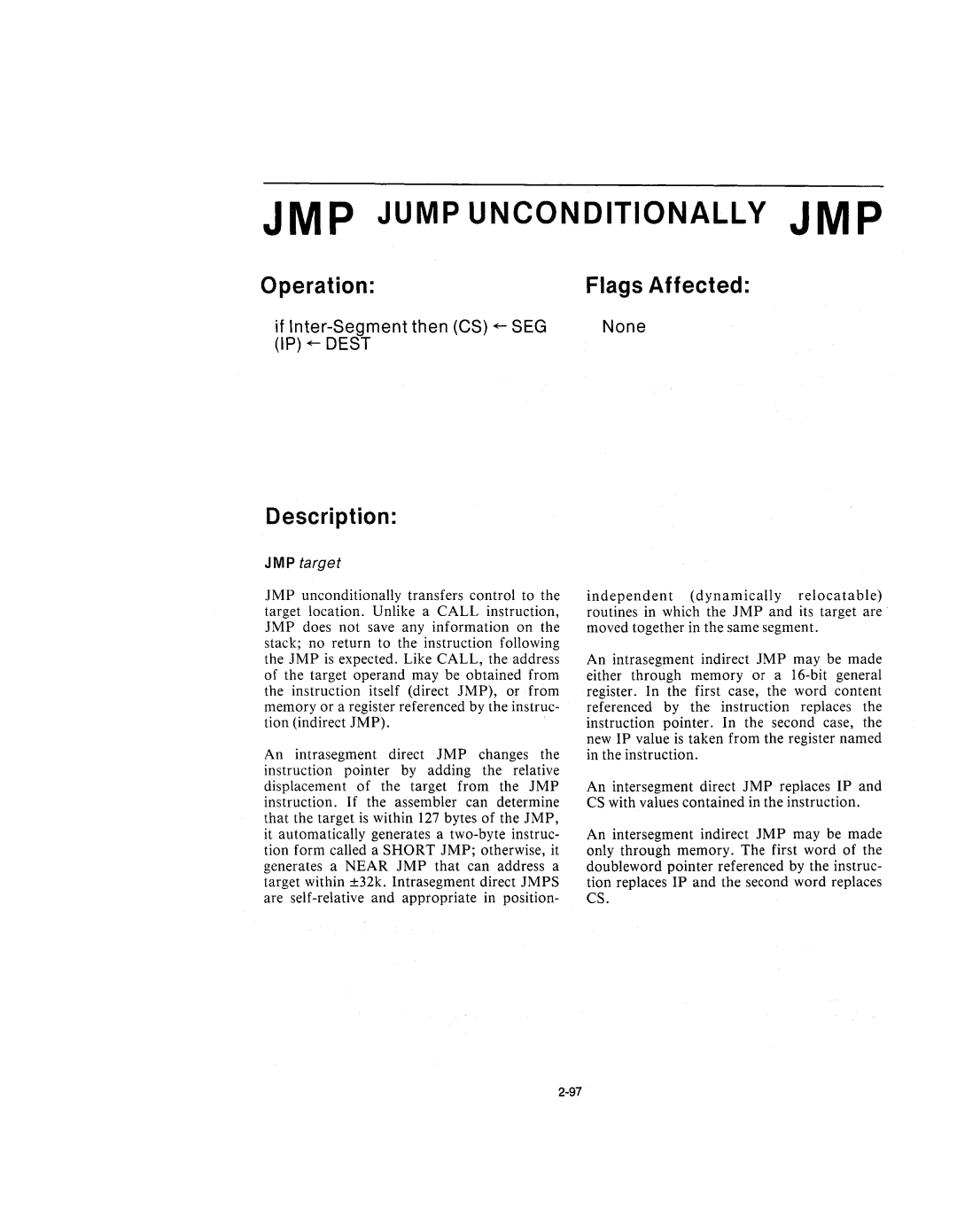
JMP JUMP UNCONDITIONALLY JMP
Operation:
if
Description:
JMP target
JMP unconditionally transfers control to the target location. Unlike a CALL instruction, JMP does not save any information on the stack; no return to the instruction following the JMP is expected. Like CALL, the address of the target operand may be obtained from the instruction itself (direct JMP), or from memory or a register referenced by the instruc- tion (indirect JMP).
An intrasegment direct JMP changes the instruction pointer by adding the relative displacement of the target from the JMP instruction. If the assembler can determine that the target is within 127 bytes of the JMP, it automatically generates a
Flags Affected:
None
independent (dynamically relocatable) routines in which the JMP and its target are moved together in the same segment.
An intrasegment indirect JMP may be made either through memory or a
An intersegment direct JMP replaces IP and CS with values contained in the instruction.
An intersegment indirect JMP may be made only through memory. The first word of the doubleword pointer referenced by the instruc- tion replaces IP and the second word replaces CS.
